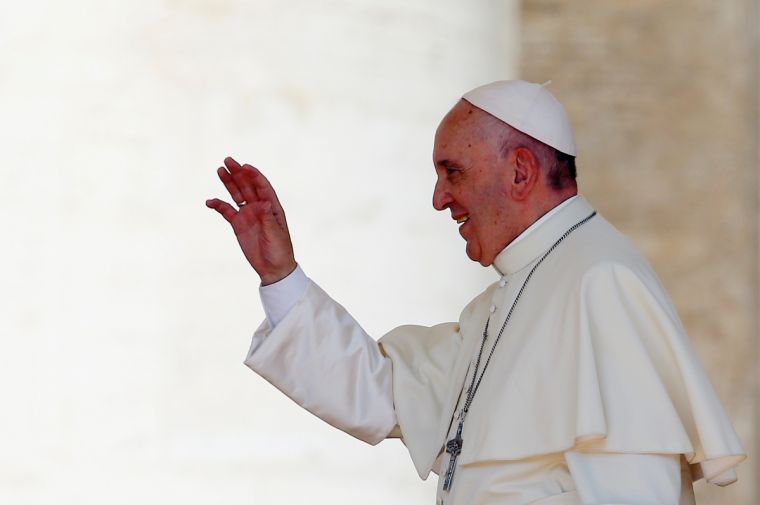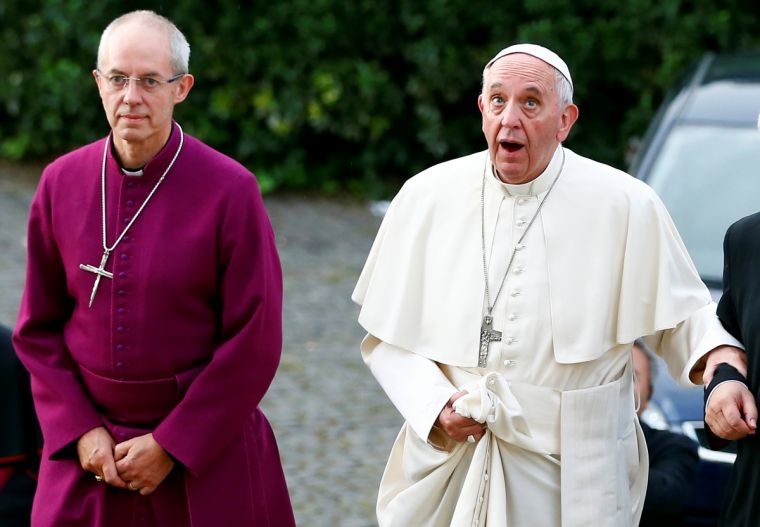Why Pope Francis May Get The Cold Shoulder In Sweden

Pope Francis is likely to receive a muted reception when he arrives in Sweden next week for the first papal visit there in 30 years.
The Scandinavian nation is one of the most secular countries in the world with openly gay Lutheran bishops and cemeteries for atheists. Howver, Bishop William Kenney, the co-chair of the Catholic-Lutheran dialogue, described the visit as "a matter of great symbolic significance" in an interview with Christian Today this week.
"The Lutheran-Catholic dialogue has progressed in leaps and bounds since the 1999 document," said Kenny, referring to the Joint Declaration on the Doctrine of Justification signed between the two Churches. That agreement "removed most of the things that people thought caused the Reformation – the excommunications on the Catholic side, and the condemnations on the Lutheran side – and we said sorry, both sides got it wrong. This left us with the big reasons for the Reformation not being there but it's [about] finding out what that means."
Kenney described last year's follow-up document, From Conflict To Communion, as "more popular and easily read" adding that "it lays out some of the ways in which we are coming towards each other".
But a group of 50 prominent evangelical theologians have released a "statement of evangelical convictions" ahead of the trip. The document disputes whether "fundamental theological differences between Catholics and Protestants/Evangelicals disappeared".
Entitled 'Is the Reformation Over?' it concludes: "The issues that gave birth to the Reformation five hundred years ago are still very much alive in the twenty-first century for the whole Church. While we welcome all opportunities to clarify them, Evangelicals affirm, with the Reformers, the foundational convictions that our final authority is the Bible and that we are saved through faith alone."

While in Sweden Francis will take part in a joint Catholic-Lutheran service in Lund to mark the start of the 500th anniversary of Martin Luther's anti-Catholic Reformation that led to a bloody schism in Europe.
While trips to countries like the Philippines attract huge crowds, Francis's attempt at dialogue with Lutherans may go either unnoticed or criticised by Scandinavians whose views on sexuality and abortion are among the world's most liberal.
"This is really the first time Francis will have spoken so directly to the secular West, and he will do so in the country that is considered the world's capital of irreligion," said Austen Ivereigh, a papal biographer and Catholic commentator, according to Reuters.
Ecumenical efforts have been stepped up between Anglicans and Catholics with the Archbishop of Canterbury meeting Francis for the third time in three years earlier in October. The two leaders "sent out" 19 pairs of Anglican and Catholic bishops from around the world to join together in mission.
The visit to Sweden could see Francis make a similiar symbolic attempt to help unite Lutherans and Catholics. This could include allowing non-Catholic partners in a Catholic-Lutheran marriage to receive Communion at Catholic Masses.
"It's easy to perceive this as a papal visit when it's not. It's about the meeting of Lutherans and Catholics," said Antje Jackelen, Lutheran archbishop of Uppsala and Sweden's first woman archbishop.
Polls show Sweden, nominally Lutheran, is one of the world's most irreligious nations. In a WIN-Gallup survey last year, around eight in 10 Swedes said they were either "not religious" or "convinced atheists." Surveys show Swedes trust institutions like the tax agency more than the Lutheran Church.
An atheist cemetery opened this year, where Swedes can be buried without religious symbols like the cross, star of David or Islamic crescent.
David Thurfjell, professor of religion and history at Sodertorn University, said for many Swedes it may be easier to come out as gay than to come out as religious.
"Swedes are just uneasy with the word," said Thurfjell. "You would just never call yourself religious."
It is a trend seen across the Nordics. After making it possible to exit from membership on-line, Norway's Lutheran state Church saw 25,000 people exit in August, the biggest one-month drop in its history.
Swedes still take part in Christian sacraments such as baptism and many still pay small voluntary tax contributions to the Lutheran Church of Sweden.
Some also say that a wave of new immigrants - many Christians and Muslims who have fled war in the Middle East - is changing attitudes. Around 17 per cent of Swedes are now foreign-born.
"It has been secularised for so long, that people start to get tired and sick of it," Sweden's only Catholic archbishop, Anders Arborelius, said. "The new situation with a massive immigration of people who are often more religious has also changed the mentality."
Multi-culturalism has challenged Sweden's comfortable secular identity. This year Sweden faced controversy when former schools minister Aida Hadzialic, herself an immigrant, said religious schools that separate boys from girls should not be allowed.
That backlash against any perception of religious interference may mark Francis's visit.
"I hope they'll [Swedes] be opposed to the Middle Age dogma the papacy represents," former ABBA band member Bjorn Ulvaeus and member of Sweden's Humanist Association said in an email. "But, I fear, they'll be mostly indifferent."
Additional reporting by Reuters.











